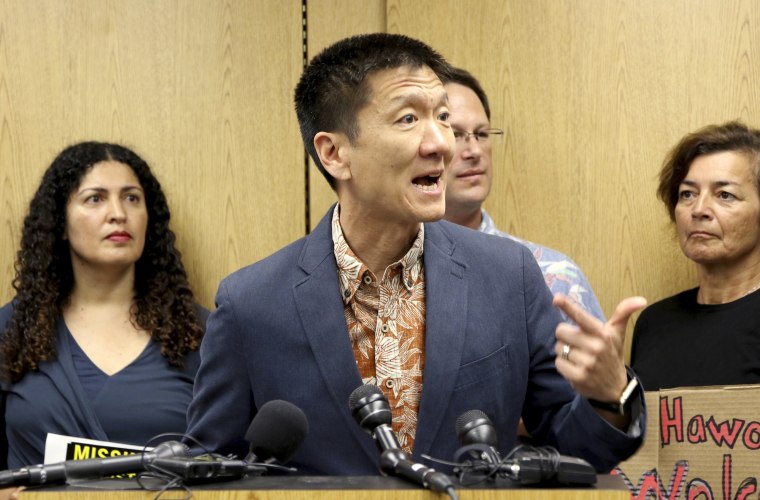A three-judge panel of the 9th U.S. Court of Appeals on Friday declined to issue a ruling sought by the state of Hawaii over President Donald Trump’s so-called "travel ban," saying it didn't have jurisdiction.
Hawaii sought to have grandparents and other relatives exempt from the executive order, which the Supreme Court allowed to partially be implemented in June.
A federal judge in Hawaii on Thursday declined to clarify the high court's order and said Hawaii should have asked the Supreme Court to clarify its order, not the district court. Lawyers for Hawaii appealed, and the appeals court panel on Friday said it lacked jurisdiction to review the district court's order.
The appeals panel said that while district courts could grant relief if the Supreme Court's order was being violated, Hawaii "sought clarification of the Supreme Court's June 26 order, not injunctive relief" and the lower court was not wrong in denying the request.
Trump's executive order calls for a 90-day ban on issuing visas to citizens of Iran, Sudan, Syria, Libya, Somalia and Yemen who want to come to the U.S. But unlike the first executive order, this one does not apply to anyone who has already obtained a valid visa.

The definitions announced by the State Department on June 29 said parents, parents-in-law, spouses, fiancés, children, and children-in-law would be exempt from the ban on visas.
Grandparents, aunts, uncles, cousins, nieces, nephews and siblings-in-law would be subject to the ban.
Lawyers for Hawaii said that the government was unlawfully excluding foreign nationals.
"Every day that passes is a day when our government is turning away human beings — from newborn children to elderly grandparents — whom the injunction requires to be admitted," the state said in its request to the appeals court.
The Supreme Court in June also agreed to take up government appeal of lower court rulings which had blocked implementation of Trump’s executive order.
